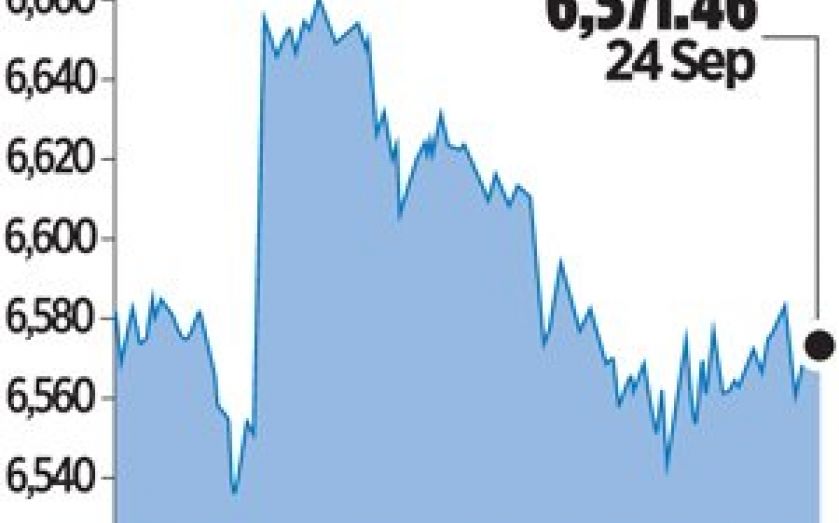London Report: FTSE reverses slide despite US uncertainty

BRITAIN’S top share index halted a two-day slide yesterday but a selloff in cruise operator Carnival and uncertainty about the US fiscal outlook curbed investors’ appetite.
Shares in Carnival fell 5.6 per cent in volume nearly four times its average for the past three months after it warned about a possible loss for the current quarter and posted a 30 per cent fall in its third-quarter profit.
It was the top faller on the FTSE 100, which ended up 14.1 points, or 0.2 per cent, at 6,571.46 points.
The index found support around 6,540, this week’s low point, after a one per cent drop over the previous two sessions and was in a tight range between this and its September top just above 6,600.
Political discord over the US budget raised the prospect of a federal government shutdown if a deal is not struck by month-end, deterring many investors from buying British blue chips as they traded just three per cent off 13-year highs hit back in May.
“In the short term, it [the market] has got the US budget negotiations and the debt ceiling negotiations to cope with, so that’s restraining animal spirits a little bit this week,” said
Nick Beecroft, chairman of Saxo Capital Markets.
“But I think that will ultimately get sorted out next week in such a way that markets can flourish.”
The FTSE has given back all the gains made after the Federal Reserve’s decision last week not to scale back its equity-friendly bond buying programme as mixed comments from policy makers raised uncertainty about the Fed’s future moves.
Fed speakers on Monday added to the confusion by saying there probably was not enough data to taper at the next meeting, contradicting what St. Louis’ Fed president James Bullard said on Friday.
Yet many in the markets still expected the rally to resume, fuelled by recent, better-than-expected economic data from Britain and the rest of Europe. “We believe we are in a bull market and we are not concerned by any of the recent bouts of profit-taking,” said JN Financial’s Rick Jones.
Yet an analysis of share price valuations and earnings provided a more sobering picture. The Fed’s QE has propelled British shares to a 12-month forward price-to-earnings ratio of 12.2, a level not seen since early 2010. This suggests the rally has been more about excess liquidity in the markets than underlying company profit growth.